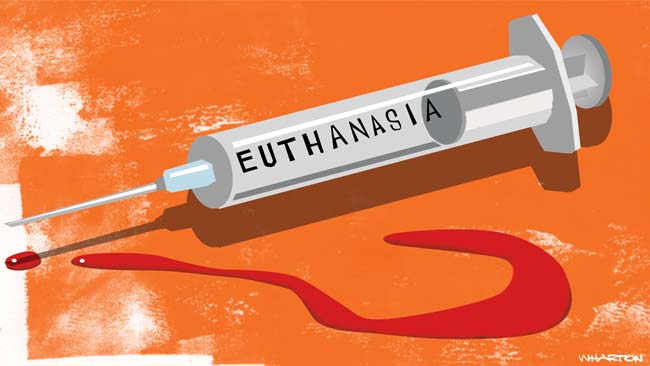EUTHANASIA is an act of deliberately or intentionally ending a person’s life to relieve their pain.
As secularism continues to grow in popularity, euthanasia is becoming more prevalent in today’s Western cultures.
Euthanasia is one of the most complex and significant ethical issues facing human rights of our times; the subject has generated many controversial debates, especially on its legality.
Natural law is a philosophy that places reason at the centre of moral thought and decision-making.
Natural law centred on the core rules of worshipping God, living in an ordered society, reproducing, learning, and defending the innocent.
Euthanasia violates some of these primary precepts and is thus considered forbidden under natural law.
People seem to believe that euthanasia is flawed as it violates and opposes the precepts of protecting the innocent. Killing someone, whether voluntarily or involuntarily, is indeed a blunder.
Only God ought to have the power to end a person’s life.
Euthanasia is likewise illegal under natural law based on opposing real and apparent goods.
Killing someone is obviously a mistake since there is no long-term contentment; the person is dead, even though the person may be relieved from suffering long-term pain due to the killing.
On the other hand, proponents of natural law argue that legalising euthanasia will set a dangerous precedent and create a risk of a “slippery slope” in which killing becomes natural.
Natural law upholds the sanctity of human life; thus, any conduct that will take life away or endangers life will be prohibited. This sort of conduct is incompatible with human nature.
However, natural law also has the flaw of contradicting itself.
Although the primary precepts prohibit euthanasia as it actively kills a person, the practise of euthanasia is allowed under the doctrine of double effect.
According to the principle of double effect, if doing something morally good unintentionally brought forth ethically negative side effects, it would still be considered morally appropriate.
This principle was in line with the teaching of Catholic moral philosophers, which justify a doctor to administer heavy doses of drugs to a dying person who is experiencing excruciating pain, even though, as a direct and foreseen consequence, it will cause the patient’s death.
Such practice by the doctor is practicable as the intention of the medical practitioner is not to kill the patient; instead, the evil result of the patient’s death is only a side-effect of the excellent effect of reducing the patient’s pain.
Under those circumstances, this is not the doctor’s fault, and it is permissible.
It is undoubtedly that under the belief of natural law, euthanasia’s practice shall be prohibited.
However, in my opinion, there is still indeed a need to enact legislation to legalise the usage of euthanasia.
Euthanasia should be practicable to those who suffer detriment illness, and no cure is available for them.
The right to life on human rights should be interpreted broadly, including the decisions about the quality of life, including decisions about death if the life is no longer one of quality.
Does ‘Right to life’ become a reality and triumph over ‘Right to die with dignity’?
Furthermore, it is costly to sustain life when there is no cure for their condition; euthanasia plays an essential role in freeing up precious resources to help patients who still ought to have an opportunity to survive.
To summarise, the medical profession’s goals should continue to be used to save lives, but this should not lead to the downfall of affecting and taking away a terminally ill person’s right to choose to end their life and die with dignity. – Nov 24, 2021
Ee Gen You is a third-year law student at Universiti Kebangsaan Malaysia (UKM) and Dr Nabeel Mahdi Althabhawi teaches law at the same university.
The views expressed are solely of the authors and do not necessarily reflect those of Focus Malaysia.









